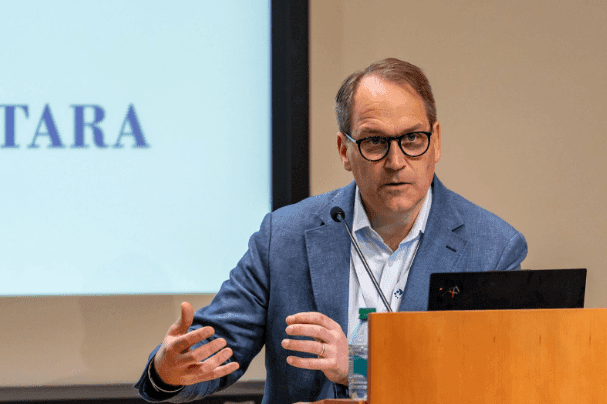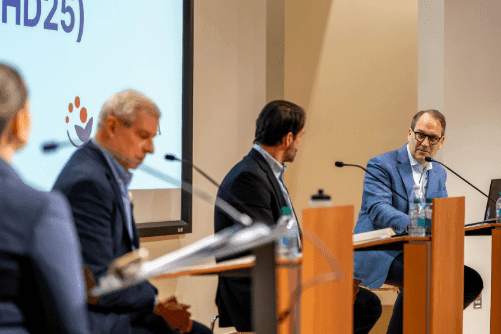Dr. E. Anders Kolb, The Leukemia & Lymphoma Society President, Champions Health Equity at Cancer Disparities Summit

Author
Binaytara Team
LLS President Addresses Critical Need for Innovation and Access in Blood Cancer Treatment
At the 2025 Summit on Cancer Health Disparities (SCHD), Dr. E. Anders Kolb, President and CEO of The Leukemia & Lymphoma Society, brought decades of clinical insight and leadership to the closing debate, “Crisis in Care: Can the U.S. Find a Sustainable Model for Affordable Healthcare?”
The purpose of this session was to have a robust discussion on whether the United States can achieve a sustainable, affordable healthcare model, while focusing on crisis and accessible care.
From a clinical and personal perspective, Dr. Kolb addressed challenges that blood cancer patients face in an increasingly complex healthcare system. He reminded the audience that many blood cancers lack effective screening or prevention strategies, placing a heavy burden on treatment access.
“There is no choice. Personalized and precision care is cancer care. It is the standard today,” said Dr. Kolb. “Yes, these therapies are expensive when viewed by the visit, or by the course, or by the year, but we are not accounting for the alternative costs.”
He cited the transformative impact of treatments like imatinib for chronic myelogenous leukemia, which replaced toxic therapies with one that allows patients to live a normal lifespan. “This is not just about reducing costs. It is about understanding the value of precision care over a lifetime.”
Throughout the debate, Dr. Kolb consistently highlighted the urgent need to protect patients from the instability of shifting healthcare policies. “More than half of our patients rely on Medicaid coverage,” he said. “Sudden policy shifts force them to scramble, wondering if their medication will still be available or if they will need to find a new doctor when they are abruptly dropped from the system.”

Dr. Kolb engaging with other panelists at the SCHD25 closing debate
Dr. Kolb also addressed the larger question of healthcare access and the ethical foundations of the U.S. system. “We need a national agreement that healthcare is indeed a human right in America,” he said. “Only then can we properly address implementation challenges.”
His remarks emphasized not only medical innovation but also structural equity. He drew attention to racial and geographic disparities in access to advanced therapies, noting that many cutting-edge treatments are only available in a handful of urban cancer centers. “The FDA should require feasibility studies for administration in community settings, not just academic centers,” he said, advocating for more inclusive clinical trials and real-world usability of therapies.
On research, Dr. Kolb reaffirmed that the United States is a world leader in the development of innovative therapy for cancer, stating, “This is the product of sustained and critical investments from the NIH that have contributed substantially to the US economy and the health of Americans.”
When asked how a billion dollars could be used to improve the U.S. healthcare system, Dr. Kolb responded, “My first reaction was, ‘Only a billion?’ It won’t go far. But health literacy is one key area where that money could make a difference.”
Whether discussing access, affordability, or innovation, Dr. Kolb continues to stress the importance of meeting patients where they are and finding a good balance between cost and innovation.
Learn with Us and Drive Meaningful Impact
As a leader in global oncology, Binaytara organizes SCHD annually to address critical issues in cancer health disparities. All our CME conferences are multidisciplinary and are designed for physicians, advanced practice providers, pharmacists, nurses, and other healthcare professionals committed to advancing cancer care. We strongly believe that targeted CME and cross-institutional collaboration are essential to expanding the reach and impact of novel cancer treatments. Learn more about upcoming regional and national hematology/oncology conferences and initiatives at the Binaytara Education Academy.
Disclaimer: The views and opinions expressed by Dr. Kolb are his own and do not necessarily represent the official position of The Leukemia & Lymphoma Society. Some statements reflect his professional experience and clinical perspective.